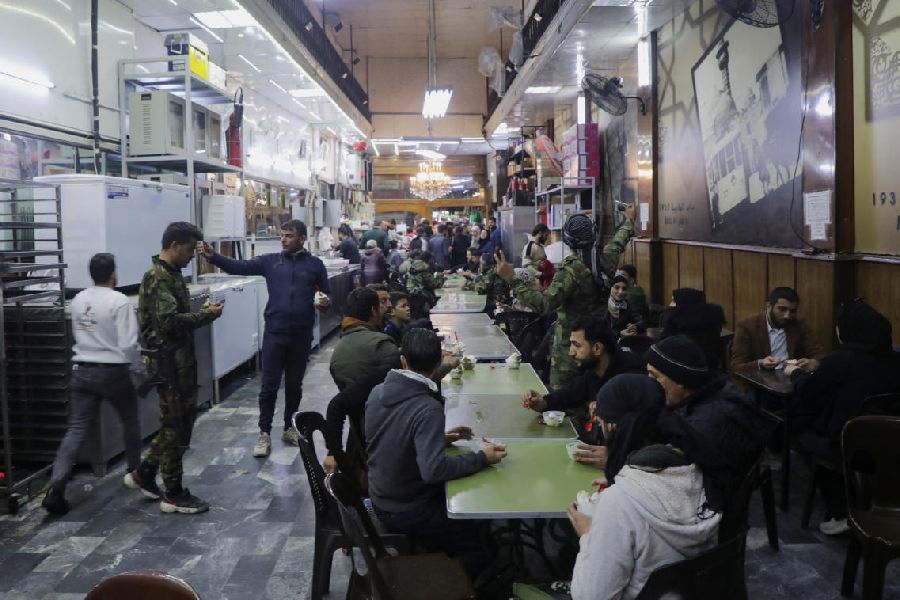Syria’s new interim leader announced on Tuesday he was taking charge of the country as caretaker Prime Minister with the backing of the former rebels who toppled President Bashar al-Assad three days ago.
In a brief address on state television, Mohammed al-Bashir, a figure little known across most of Syria who previously ran an administration in a small pocket of the northwest controlled by rebels, said he would lead the interim authority until March 1.
“Today we held a cabinet meeting that included a team from the Salvation government that was working in Idlib and its vicinity, and the government of the ousted regime,” he said.
“The meeting was under the headline of transferring the files and institutions to caretake the government.”
Behind him were two flags: the green, black and white flag flown by opponents of Assad throughout the civil war, and a white flag with the Islamic oath of faith in black writing, typically flown in Syria by Sunni Islamist fighters. In the Syrian capital, banks reopened for the first time since Assad’s overthrow. Shops were also reopening, traffic returned to the roads, construction workers were back fixing a roundabout in the Damascus city centre and street cleaners were out sweeping the streets.
There was a notable decrease in the number of armed men on the streets. Two sources close to the rebels said their command had ordered fighters to withdraw from cities and for police and internal security forces affiliated with the main rebel group, Hayat Tahrir al-Shams to deploy.
The steps towards normalisation came despite intense airstrikes from Israel targeting bases of the Syrian army, whose forces had melted away in the face of the rebel advance that ousted Assad.
Israel, which has sent forces across the border into a demilitarised zone inside Syria, said its airstrikes were aimed at keeping weapons from falling into hostile hands. It denied reports that its forces had advanced beyond the buffer zone into countryside southwest of Damascus. In a sign foreigners are ready to work with HTS, the former al Qaida affiliate that led the anti-Assad revolt and has lately emphasised its break with its jihadist roots, the UN envoy to Syria played down its designation as a terrorist organisation.
The new interim Syrian leader has little political profile beyond Idlib, the small, rural region of the northwest where rebels had maintained an administration.











